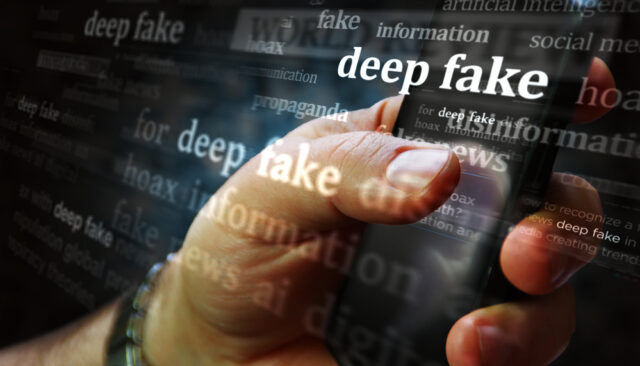Think you can spot a deepfake? Think again

A new study from Jumio reveals that 52 percent of global respondents believe they could successfully detect a deepfake video.
However, the report's authors believe this reflects over-confidence on the part of consumers, given the reality that deepfakes have reached a level of sophistication that prevents detection by the naked eye.
"A lot of people seem to think they can spot a deepfake. While there are certainly tell-tale signs to look for, deepfakes are getting exponentially better all the time and are becoming increasingly difficult to detect without the aid of AI," says Stuart Wells, Jumio's chief technology officer. "While AI-powered technology will increasingly be required by businesses to spot and protect their networks and customers from deepfakes, consumers can protect themselves by treating provocative images, videos and audio with skepticism. Some quick research will usually uncover whether it's a fake or not."
The study, of over 8,000 adult consumers split evenly across the United Kingdom, United States, Singapore and Mexico, shows 67 percent say they are aware of generative AI tools -- such as ChatGPT -- which can produce fabricated content, including videos, images and audio. Awareness is highest among consumers in Singapore (87 percent) and lowest among those in the UK (56 percent).
Over half (57 percent) of consumers globally and 49 percent in the US think the availability of generative AI tools will make online identity theft easier.
"Organizations have a duty to educate their customers on the nuances of generative AI technologies to help them develop more realistic expectations of their ability to detect deepfakes," says Philipp Pointner, Jumio's chief of digital identity. "At the same time, even the best education will never be able to completely stop a fraudster's use of evolving technologies. Online organizations must look to implement multimodal, biometric-based verification systems that can detect deepfakes and prevent stolen personal information from being used. Encouragingly, our research indicated strong consumer appetite for this form of identity verification, which businesses should act on fast."
Overall 68 percent of consumers are open to using a digital identity to verify themselves online. The top sectors where they would prefer a digital identity over a physical ID (like a driver’s license or passport) are financial services (43 percent), government (38 percent) and healthcare (35 percent).
You can get the full report from the Jumio site.
Image credit: Skorzewiak/depositphotos.com
